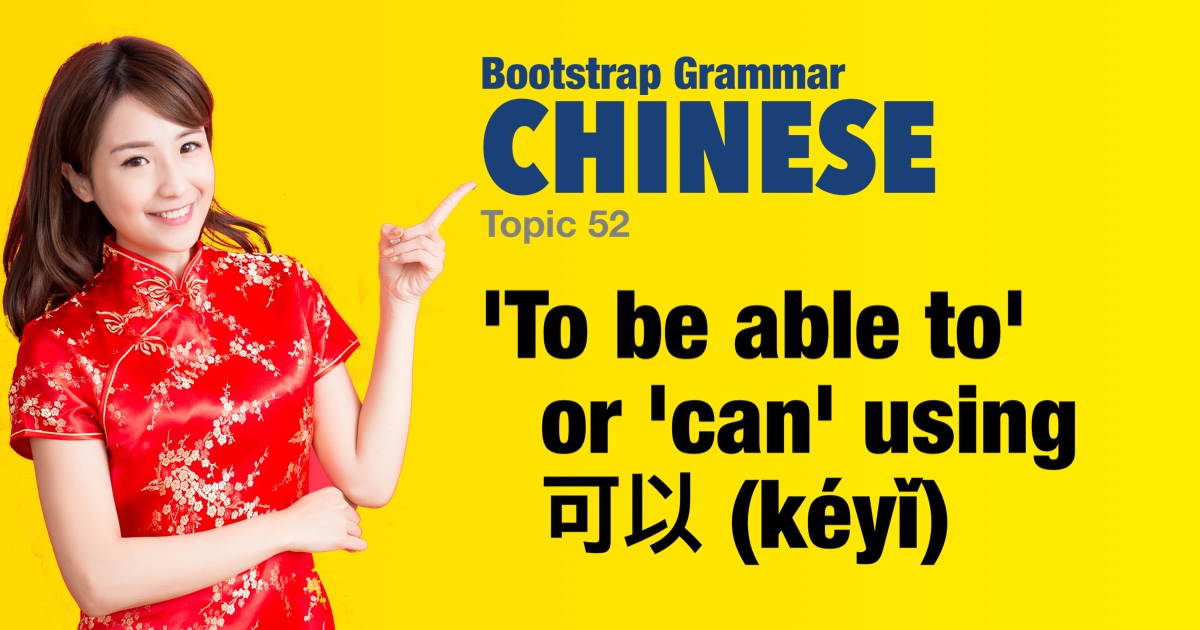Chinese grammar - 'To be able to' or 'can' using 可以 (kéyǐ) |
|||
|
|||
In Chinese, the verb 可以 (kéyǐ) means 'to be able to' or 'can'. The emphasis is on 'permission' or 'possibility'. — Recall that 会 (huì) is used to express ability to do 'learned skills'. When talking about physical or mental ability it is more common to use 能 (néng) which is covered in the next topic. Note the tone change from 'kě' (3rd tone) to 'ké' (2nd tone) when 可 is followed by a 3rd tone such as in 以 (yǐ). |
| Examples: | |
|
你可以坐这里。
nǐ kéyǐ zuò zhèlǐ. You can sit here.
|
|
|
我可以帮你吗?
wǒ kéyǐ bāng nǐ ma? Can I help you?
|
|
|
她可以说中文。
tā kéyǐ shuō zhōngwén. She can speak Chinese. |
|
|
这里可以拍照吗?
zhèlǐ kéyǐ pāizhào ma? Is it possible to take a picture here?
|
|
|
你可以借我笔吗?
nǐ kéyǐ jiè wǒ bǐ ma? Can you lend me a pen?
|
|
|
我可以用你的电脑吗?
wǒ kéyǐ yòng nǐ de diànnǎo ma? Can I use your computer?
|
|
|
我和我哥哥可以等你。
wǒ hé wǒ gēge kéyǐ děng nǐ. Me and my brother can wait for you. |
|
|
你可以告诉我吗?
nǐ kěyǐ gàosù wǒ ma? Can you tell me? |
|
|
他可以在这里休息。
tā kéyǐ zài zhèlǐ xiūxi. He can rest here.
|
|
|
你可以喝水。
nǐ kéyǐ hē shuǐ. You can drink water. |
|
|
他会说英语和日语。
tā huì shuō yīngyǔ hé rìyǔ. He can speak English and Japanese.
|
|
|
他可以说中文和英语。
tā kéyǐ shuō zhōngwén hé yīngyǔ. He can speak Chinese and English. |
|
|
你可以问老师。
nǐ kéyǐ wèn lǎoshī. You can ask the teacher. |
|
 |
|



